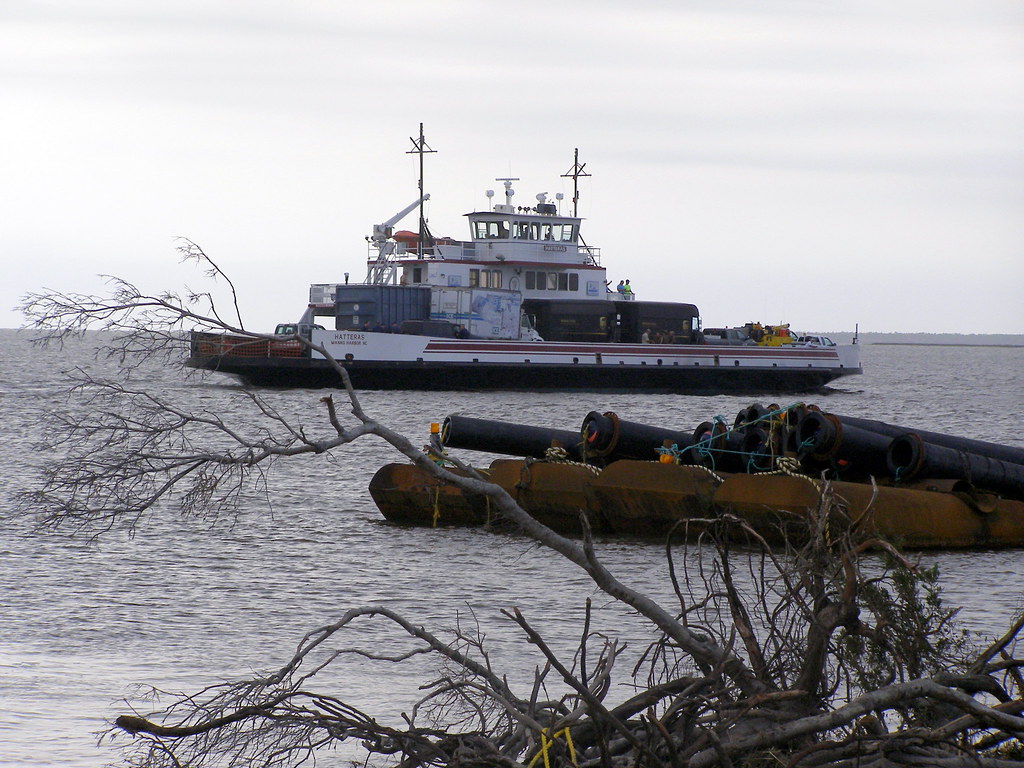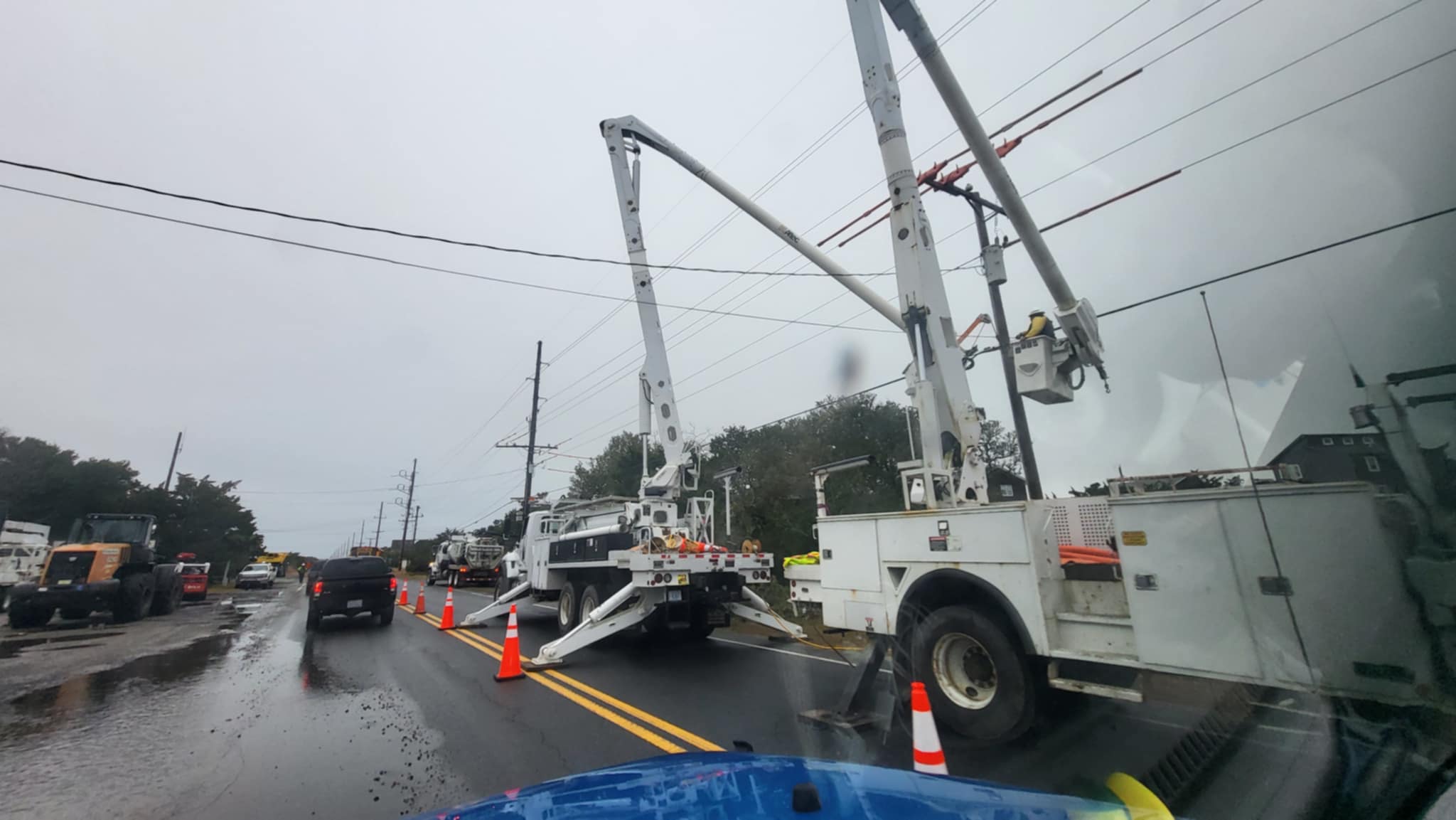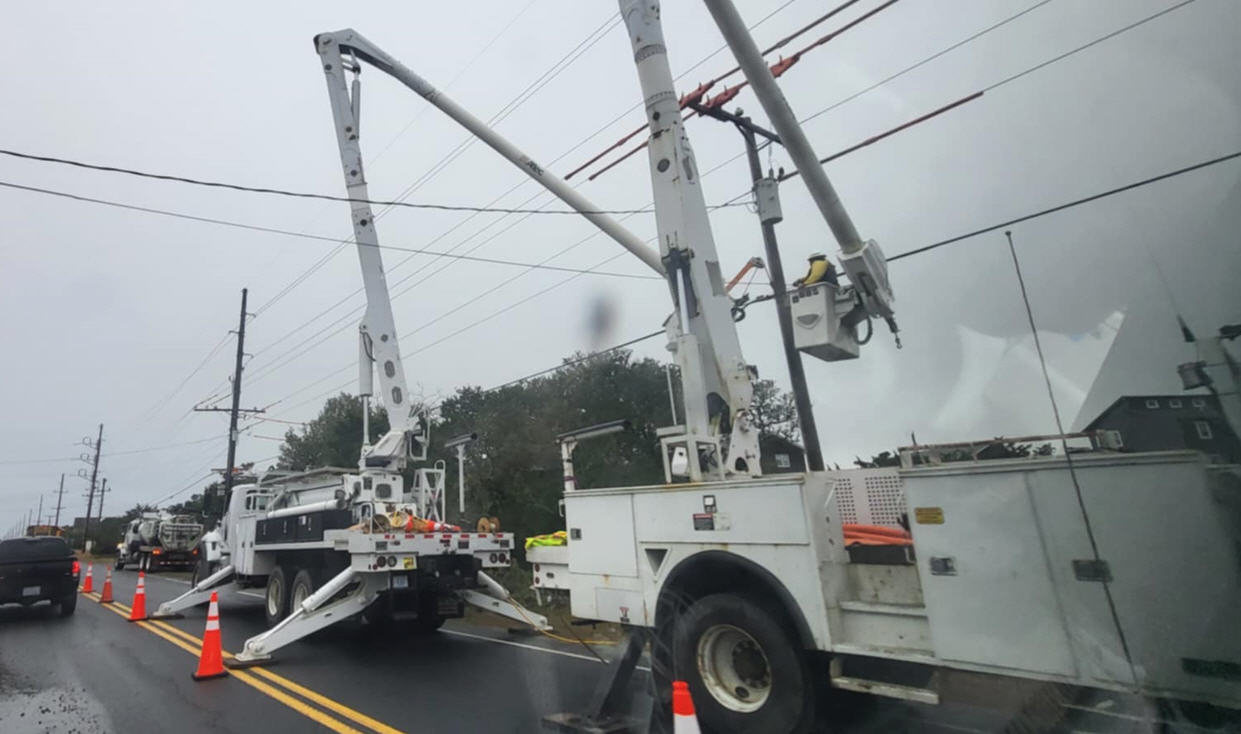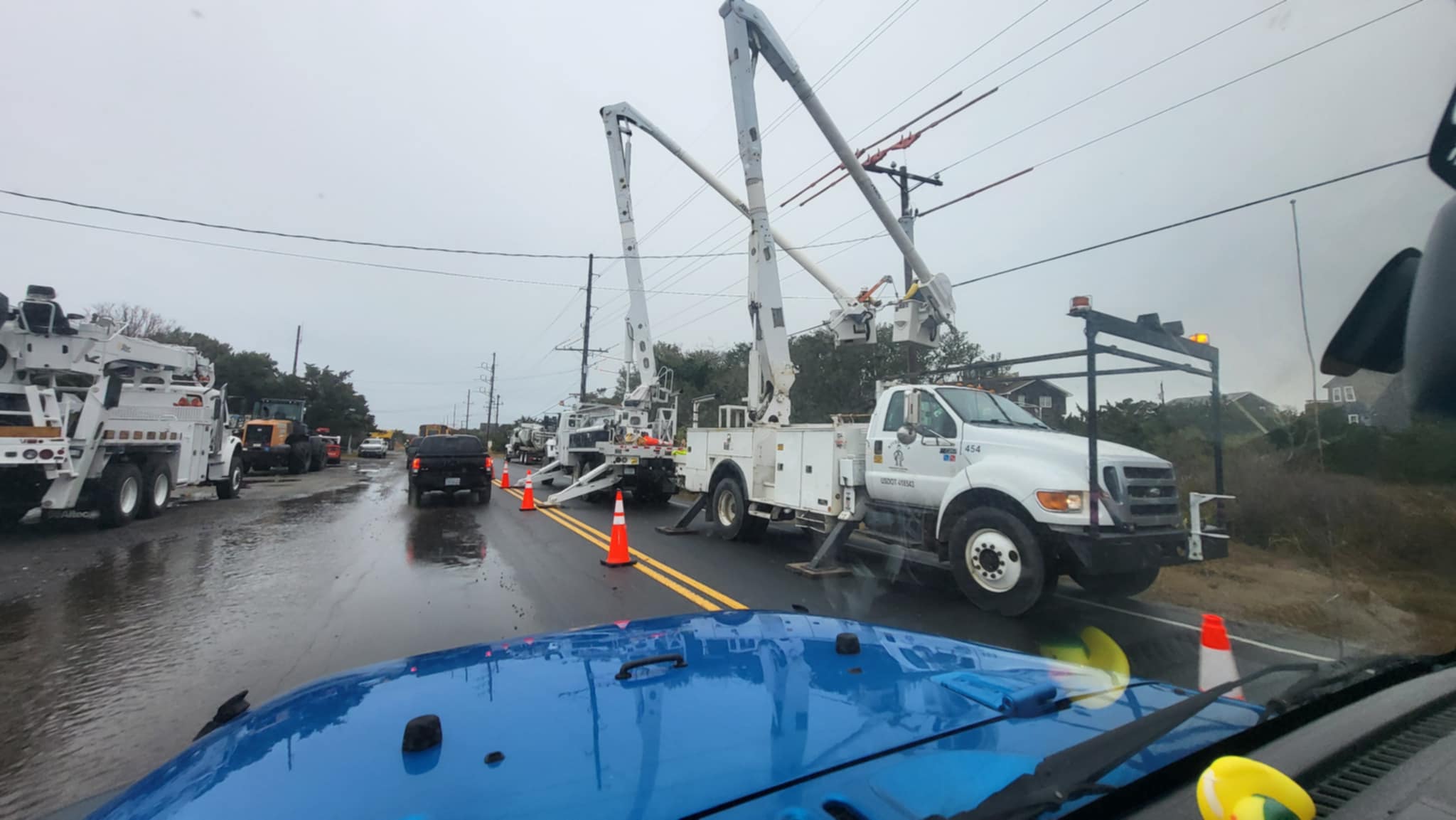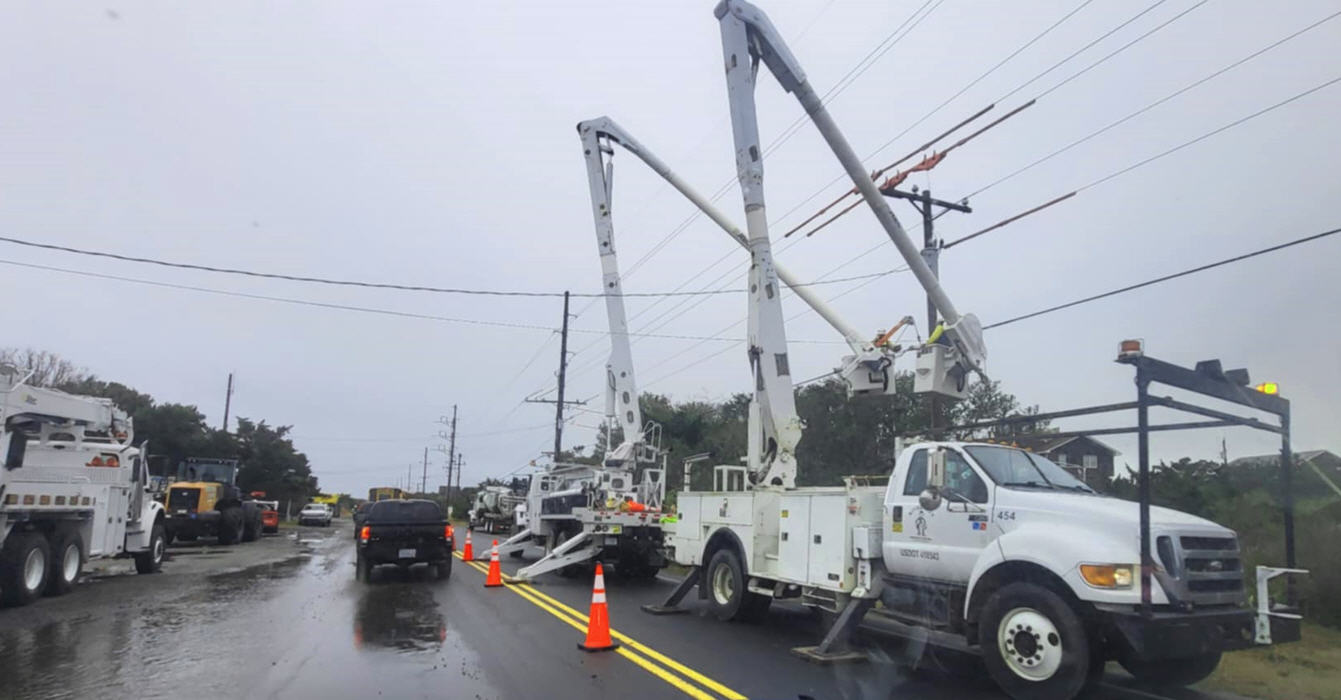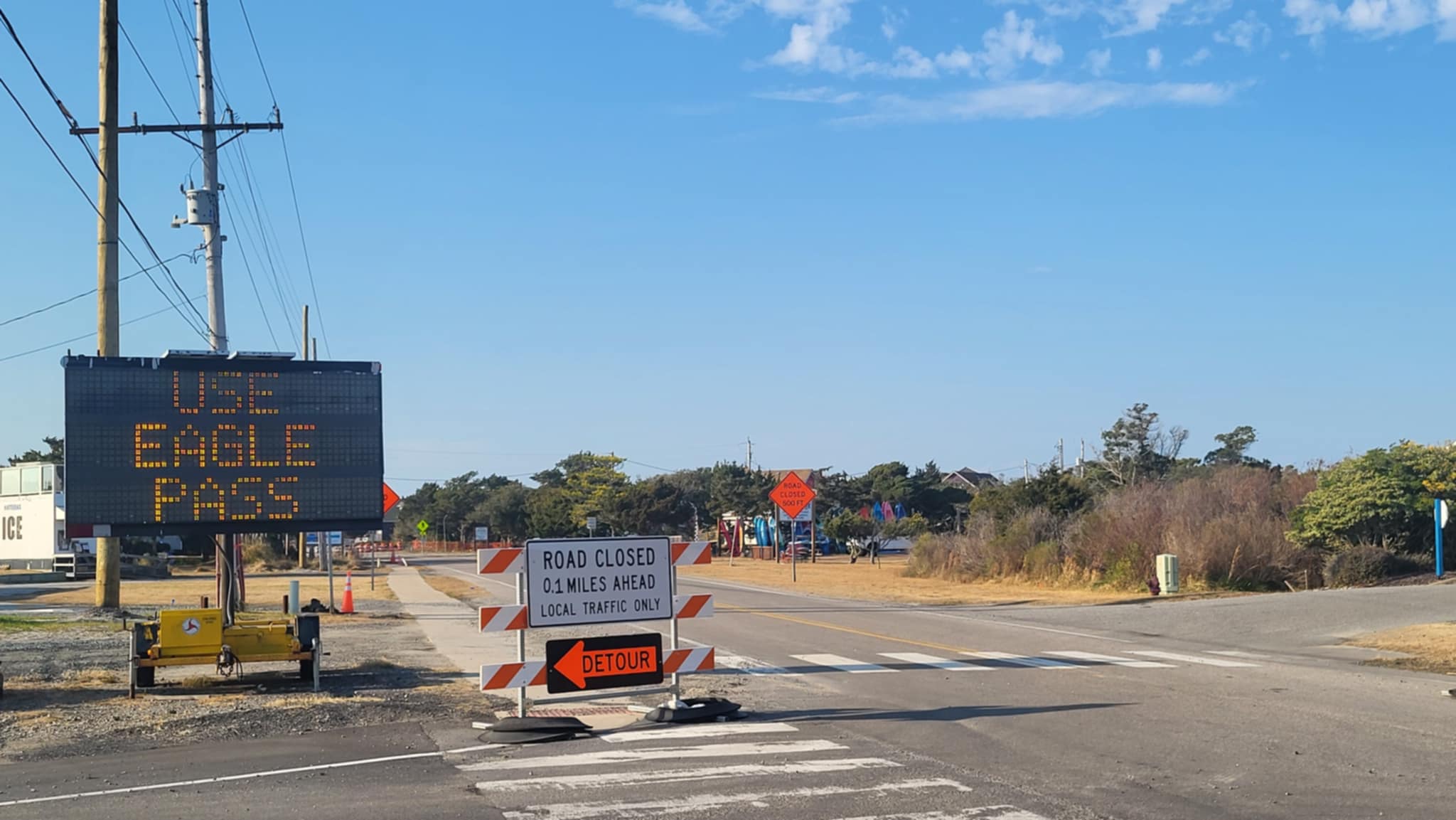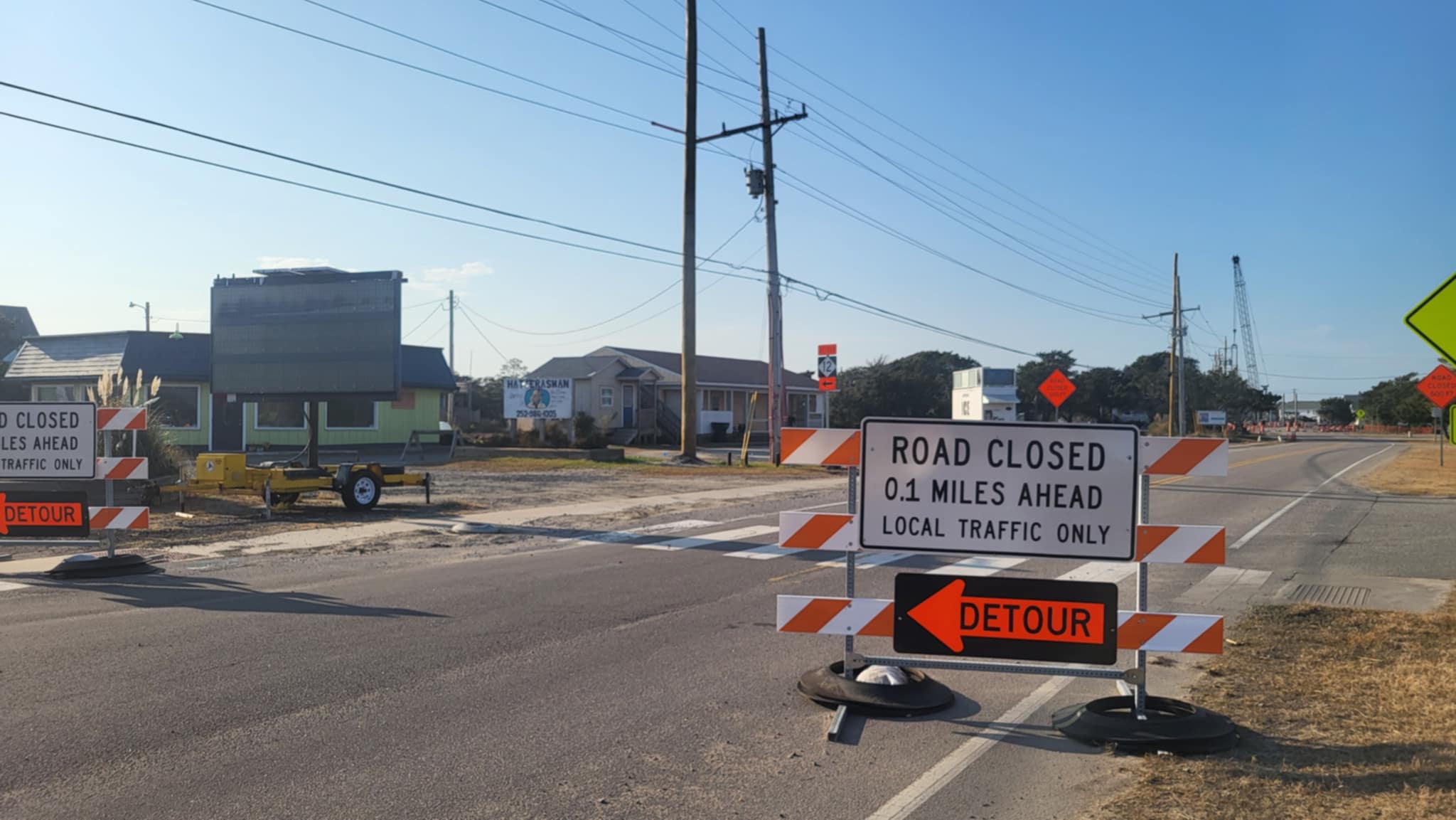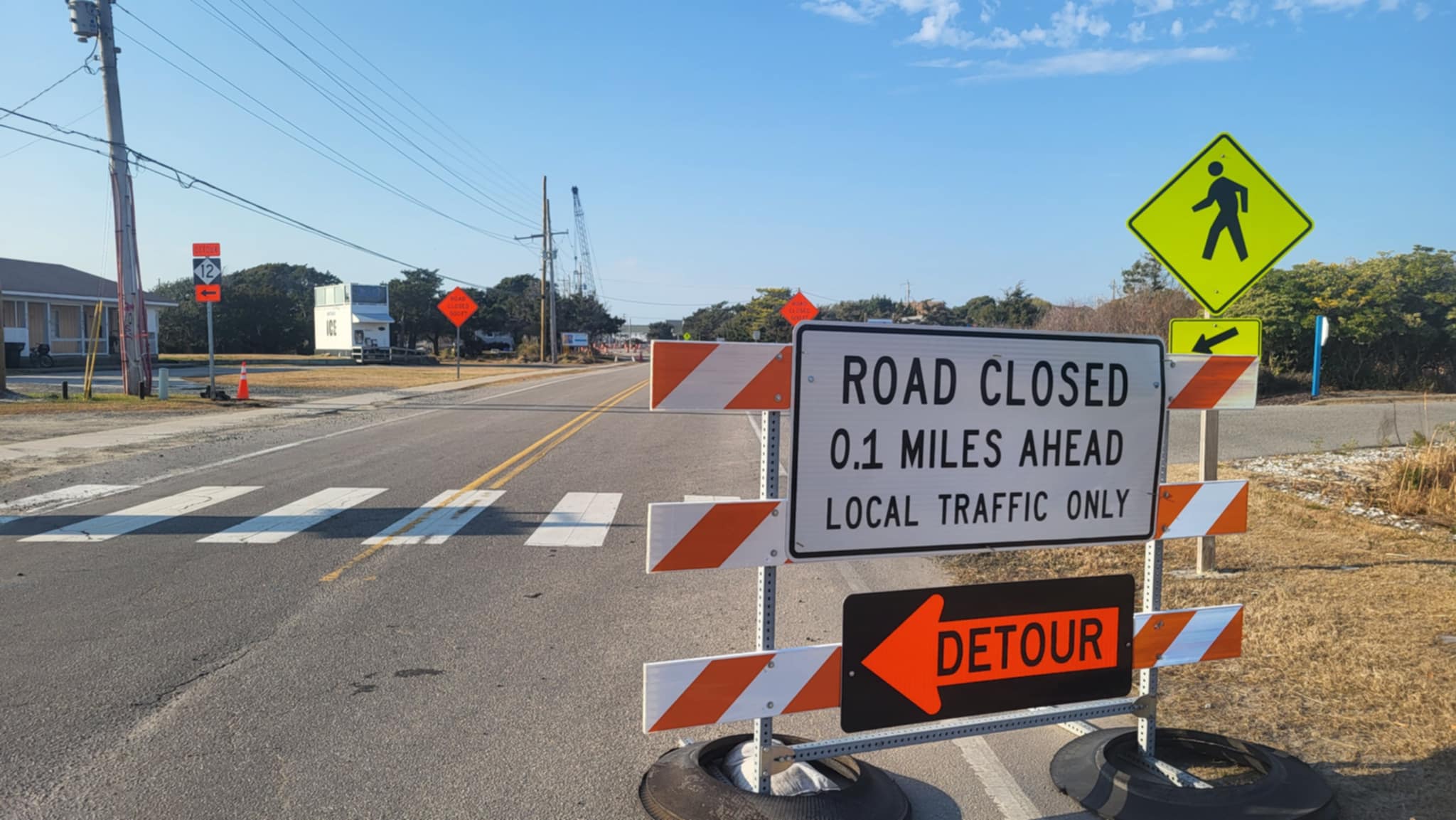The U.S. government responded yesterday to a lawsuit filed in February by the Cape Hatteras Access Preservation Alliance that seeks to overturn the National Park Service’s new off-road management plan and final rule. The complaint, filed Feb. 9 in U.S. District Court for the District of Columbia, names as defendants Ken Salazar, Secretary of the Department of the Interior, Jonathan Jarvis, director of the National Park Service, and Mike Murray, superintendent of the Cape Hatteras National Seashore. The complaint asks the court to determine that the Park Service acted improperly and to prevent NPS from implementing its final plan and rule, which became effective Feb. 15. CHAPA is a project of the Outer Banks Preservation Association, a group dedicated to preserving and protecting the historical use of the beach on the Outer Banks and specifically the Cape Hatteras National Seashore. In its complaint, CHAPA takes issue with just about every step in the process of ORV rulemaking, “An ORV management plan and a final rule that imposes severe restriction on ORV use at CHNSRA were foreordained from the time that NPS began its planning process,” the complaint says. Attorneys for the federal government responded with an affirmative defense – that CHAPA failed to make claims upon which relief can be granted. “To the extent that a response is required, Federal Defendants deny that Plaintiff is entitled to the relief requested or any relief whatsoever.” An affirmative defense is defined as “a defense in which the defendant introduces evidence, which, if found to be credible, will negate criminal or civil liability, even if it is proven that the defendant committed the alleged acts.” As one local attorney explained, the federal agencies are claiming that “there was no violation of the law, even if everything plaintiffs stated in the lawsuit is true.” The response asks the court to deny all relief sought by CHAPA in the complaint and to grant judgment to federal defendants. The 27-page response is filled with denials. It admits certain allegations — that the seashore was operating without a plan as required by several Presidential orders, that NPS began the process of developing a plan in 2005, that in March, 2010, the park published a draft plan and environmental impact statement – but denies just about everything else but the facts. The response’s affirmative defense says that even if the Park Service didn’t do it right, that CHAPA is not entitled to relief since NPS followed the rules and regulations. CHAPA spokesman David Scarborough said that “Our attorneys were not surprised” by the response. The case has been assigned to U.S. District Court Judge Emmet G. Sullivan. He issued an order today that counsel for all parties confer no later than May 24 and submit their report addressing all required topics no later than May 31. Sullivan directed counsel to include in their report a brief statement of the case and the statutory basis for all causes of action and defenses. The judge last month permitted Defenders of Wildlife, the National Audubon Society, and the National Parks Conservations Association, represented by the Southern Environmental Law Center, to join the case as defendant-intervenors on the side of the federal agencies. FOR MORE INFORMATION Click here to read the U.S. government response to the CHAPA lawsuit. Click here to read the judge’s order for counsel to meet and confer.
UPDATE: Federal government responds to CHAPA lawsuit
By IRENE NOLAN
By IRENE NOLAN
By IRENE NOLAN
The U.S. government responded yesterday to a lawsuit filed in February by the Cape Hatteras Access Preservation Alliance that seeks to overturn the National Park Service’s new off-road management plan and final rule.
The complaint, filed Feb. 9 in U.S. District Court for the District of Columbia, names as defendants Ken Salazar, Secretary of the Department of the Interior, Jonathan Jarvis, director of the National Park Service, and Mike Murray, superintendent of the Cape Hatteras National Seashore.
The complaint asks the court to determine that the Park Service acted improperly and to prevent NPS from implementing its final plan and rule, which became effective Feb. 15.
CHAPA is a project of the Outer Banks Preservation Association, a group dedicated to preserving and protecting the historical use of the beach on the Outer Banks and specifically the Cape Hatteras National Seashore.
In its complaint, CHAPA takes issue with just about every step in the process of ORV rulemaking,
“An ORV management plan and a final rule that imposes severe restriction on ORV use at CHNSRA were foreordained from the time that NPS began its planning process,” the complaint says.
Attorneys for the federal government responded with an affirmative defense – that CHAPA failed to make claims upon which relief can be granted.
“To the extent that a response is required, Federal Defendants deny that Plaintiff is entitled to the relief requested or any relief whatsoever.”
An affirmative defense is defined as “a defense in which the defendant introduces evidence, which, if found to be credible, will negate criminal or civil liability, even if it is proven that the defendant committed the alleged acts.”
As one local attorney explained, the federal agencies are claiming that “there was no violation of the law, even if everything plaintiffs stated in the lawsuit is true.”
The response asks the court to deny all relief sought by CHAPA in the complaint and to grant judgment to federal defendants.
The 27-page response is filled with denials. It admits certain allegations — that the seashore was operating without a plan as required by several Presidential orders, that NPS began the process of developing a plan in 2005, that in March, 2010, the park published a draft plan and environmental impact statement – but denies just about everything else but the facts.
The response’s affirmative defense says that even if the Park Service didn’t do it right, that CHAPA is not entitled to relief since NPS followed the rules and regulations.
CHAPA spokesman David Scarborough said that “Our attorneys were not surprised” by the response.
The case has been assigned to U.S. District Court Judge Emmet G. Sullivan.
He issued an order today that counsel for all parties confer no later than May 24 and submit their report addressing all required topics no later than May 31.
Sullivan directed counsel to include in their report a brief statement of the case and the statutory basis for all causes of action and defenses.
The judge last month permitted Defenders of Wildlife, the National Audubon Society, and the National Parks Conservations Association, represented by the Southern Environmental Law Center, to join the case as defendant-intervenors on the side of the federal agencies.
FOR MORE INFORMATION
Click here to read the U.S. government response to the CHAPA lawsuit.
Click here to read the judge’s order for counsel to meet and confer.
The U.S. government responded yesterday to a lawsuit filed in February by the Cape Hatteras Access Preservation Alliance that seeks to overturn the National Park Service’s new off-road management plan and final rule.
The complaint, filed Feb. 9 in U.S. District Court for the District of Columbia, names as defendants Ken Salazar, Secretary of the Department of the Interior, Jonathan Jarvis, director of the National Park Service, and Mike Murray, superintendent of the Cape Hatteras National Seashore.
The complaint asks the court to determine that the Park Service acted improperly and to prevent NPS from implementing its final plan and rule, which became effective Feb. 15.
CHAPA is a project of the Outer Banks Preservation Association, a group dedicated to preserving and protecting the historical use of the beach on the Outer Banks and specifically the Cape Hatteras National Seashore.
In its complaint, CHAPA takes issue with just about every step in the process of ORV rulemaking,
“An ORV management plan and a final rule that imposes severe restriction on ORV use at CHNSRA were foreordained from the time that NPS began its planning process,” the complaint says.
Attorneys for the federal government responded with an affirmative defense – that CHAPA failed to make claims upon which relief can be granted.
“To the extent that a response is required, Federal Defendants deny that Plaintiff is entitled to the relief requested or any relief whatsoever.”
An affirmative defense is defined as “a defense in which the defendant introduces evidence, which, if found to be credible, will negate criminal or civil liability, even if it is proven that the defendant committed the alleged acts.”
As one local attorney explained, the federal agencies are claiming that “there was no violation of the law, even if everything plaintiffs stated in the lawsuit is true.”
The response asks the court to deny all relief sought by CHAPA in the complaint and to grant judgment to federal defendants.
The 27-page response is filled with denials. It admits certain allegations — that the seashore was operating without a plan as required by several Presidential orders, that NPS began the process of developing a plan in 2005, that in March, 2010, the park published a draft plan and environmental impact statement – but denies just about everything else but the facts.
The response’s affirmative defense says that even if the Park Service didn’t do it right, that CHAPA is not entitled to relief since NPS followed the rules and regulations.
CHAPA spokesman David Scarborough said that “Our attorneys were not surprised” by the response.
The case has been assigned to U.S. District Court Judge Emmet G. Sullivan.
He issued an order today that counsel for all parties confer no later than May 24 and submit their report addressing all required topics no later than May 31.
Sullivan directed counsel to include in their report a brief statement of the case and the statutory basis for all causes of action and defenses.
The judge last month permitted Defenders of Wildlife, the National Audubon Society, and the National Parks Conservations Association, represented by the Southern Environmental Law Center, to join the case as defendant-intervenors on the side of the federal agencies.
FOR MORE INFORMATION
Click here to read the U.S. government response to the CHAPA lawsuit.
Click here to read the judge’s order for counsel to meet and confer.
The U.S. government responded yesterday to a lawsuit filed in February by the Cape Hatteras Access Preservation Alliance that seeks to overturn the National Park Service’s new off-road management plan and final rule.
The complaint, filed Feb. 9 in U.S. District Court for the District of Columbia, names as defendants Ken Salazar, Secretary of the Department of the Interior, Jonathan Jarvis, director of the National Park Service, and Mike Murray, superintendent of the Cape Hatteras National Seashore.
The complaint asks the court to determine that the Park Service acted improperly and to prevent NPS from implementing its final plan and rule, which became effective Feb. 15.
CHAPA is a project of the Outer Banks Preservation Association, a group dedicated to preserving and protecting the historical use of the beach on the Outer Banks and specifically the Cape Hatteras National Seashore.
In its complaint, CHAPA takes issue with just about every step in the process of ORV rulemaking,
“An ORV management plan and a final rule that imposes severe restriction on ORV use at CHNSRA were foreordained from the time that NPS began its planning process,” the complaint says.
Attorneys for the federal government responded with an affirmative defense – that CHAPA failed to make claims upon which relief can be granted.
“To the extent that a response is required, Federal Defendants deny that Plaintiff is entitled to the relief requested or any relief whatsoever.”
An affirmative defense is defined as “a defense in which the defendant introduces evidence, which, if found to be credible, will negate criminal or civil liability, even if it is proven that the defendant committed the alleged acts.”
As one local attorney explained, the federal agencies are claiming that “there was no violation of the law, even if everything plaintiffs stated in the lawsuit is true.”
The response asks the court to deny all relief sought by CHAPA in the complaint and to grant judgment to federal defendants.
The 27-page response is filled with denials. It admits certain allegations — that the seashore was operating without a plan as required by several Presidential orders, that NPS began the process of developing a plan in 2005, that in March, 2010, the park published a draft plan and environmental impact statement – but denies just about everything else but the facts.
The response’s affirmative defense says that even if the Park Service didn’t do it right, that CHAPA is not entitled to relief since NPS followed the rules and regulations.
CHAPA spokesman David Scarborough said that “Our attorneys were not surprised” by the response.
The case has been assigned to U.S. District Court Judge Emmet G. Sullivan.
He issued an order today that counsel for all parties confer no later than May 24 and submit their report addressing all required topics no later than May 31.
Sullivan directed counsel to include in their report a brief statement of the case and the statutory basis for all causes of action and defenses.
The judge last month permitted Defenders of Wildlife, the National Audubon Society, and the National Parks Conservations Association, represented by the Southern Environmental Law Center, to join the case as defendant-intervenors on the side of the federal agencies.
FOR MORE INFORMATION
Click here to read the U.S. government response to the CHAPA lawsuit.
Click here to read the judge’s order for counsel to meet and confer.
The U.S. government responded yesterday to a lawsuit filed in February by the Cape Hatteras Access Preservation Alliance that seeks to overturn the National Park Service’s new off-road management plan and final rule.
The complaint, filed Feb. 9 in U.S. District Court for the District of Columbia, names as defendants Ken Salazar, Secretary of the Department of the Interior, Jonathan Jarvis, director of the National Park Service, and Mike Murray, superintendent of the Cape Hatteras National Seashore.
The complaint asks the court to determine that the Park Service acted improperly and to prevent NPS from implementing its final plan and rule, which became effective Feb. 15.
CHAPA is a project of the Outer Banks Preservation Association, a group dedicated to preserving and protecting the historical use of the beach on the Outer Banks and specifically the Cape Hatteras National Seashore.
In its complaint, CHAPA takes issue with just about every step in the process of ORV rulemaking,
“An ORV management plan and a final rule that imposes severe restriction on ORV use at CHNSRA were foreordained from the time that NPS began its planning process,” the complaint says.
Attorneys for the federal government responded with an affirmative defense – that CHAPA failed to make claims upon which relief can be granted.
“To the extent that a response is required, Federal Defendants deny that Plaintiff is entitled to the relief requested or any relief whatsoever.”
An affirmative defense is defined as “a defense in which the defendant introduces evidence, which, if found to be credible, will negate criminal or civil liability, even if it is proven that the defendant committed the alleged acts.”
As one local attorney explained, the federal agencies are claiming that “there was no violation of the law, even if everything plaintiffs stated in the lawsuit is true.”
The response asks the court to deny all relief sought by CHAPA in the complaint and to grant judgment to federal defendants.
The 27-page response is filled with denials. It admits certain allegations — that the seashore was operating without a plan as required by several Presidential orders, that NPS began the process of developing a plan in 2005, that in March, 2010, the park published a draft plan and environmental impact statement – but denies just about everything else but the facts.
The response’s affirmative defense says that even if the Park Service didn’t do it right, that CHAPA is not entitled to relief since NPS followed the rules and regulations.
CHAPA spokesman David Scarborough said that “Our attorneys were not surprised” by the response.
The case has been assigned to U.S. District Court Judge Emmet G. Sullivan.
He issued an order today that counsel for all parties confer no later than May 24 and submit their report addressing all required topics no later than May 31.
Sullivan directed counsel to include in their report a brief statement of the case and the statutory basis for all causes of action and defenses.
The judge last month permitted Defenders of Wildlife, the National Audubon Society, and the National Parks Conservations Association, represented by the Southern Environmental Law Center, to join the case as defendant-intervenors on the side of the federal agencies.
FOR MORE INFORMATION
Click here to read the U.S. government response to the CHAPA lawsuit.
Click here to read the judge’s order for counsel to meet and confer.
Subject
Name
(required, will not be published)
(required, will not be published)
City :
State :
Your Comments:
May be posted on the Letters to the Editor page at the discretion of the editor.
May be posted on the Letters to the Editor page at the discretion of the editor.
May be posted on the Letters to the Editor page at the discretion of the editor.
May be posted on the Letters to the Editor page at the discretion of the editor.


